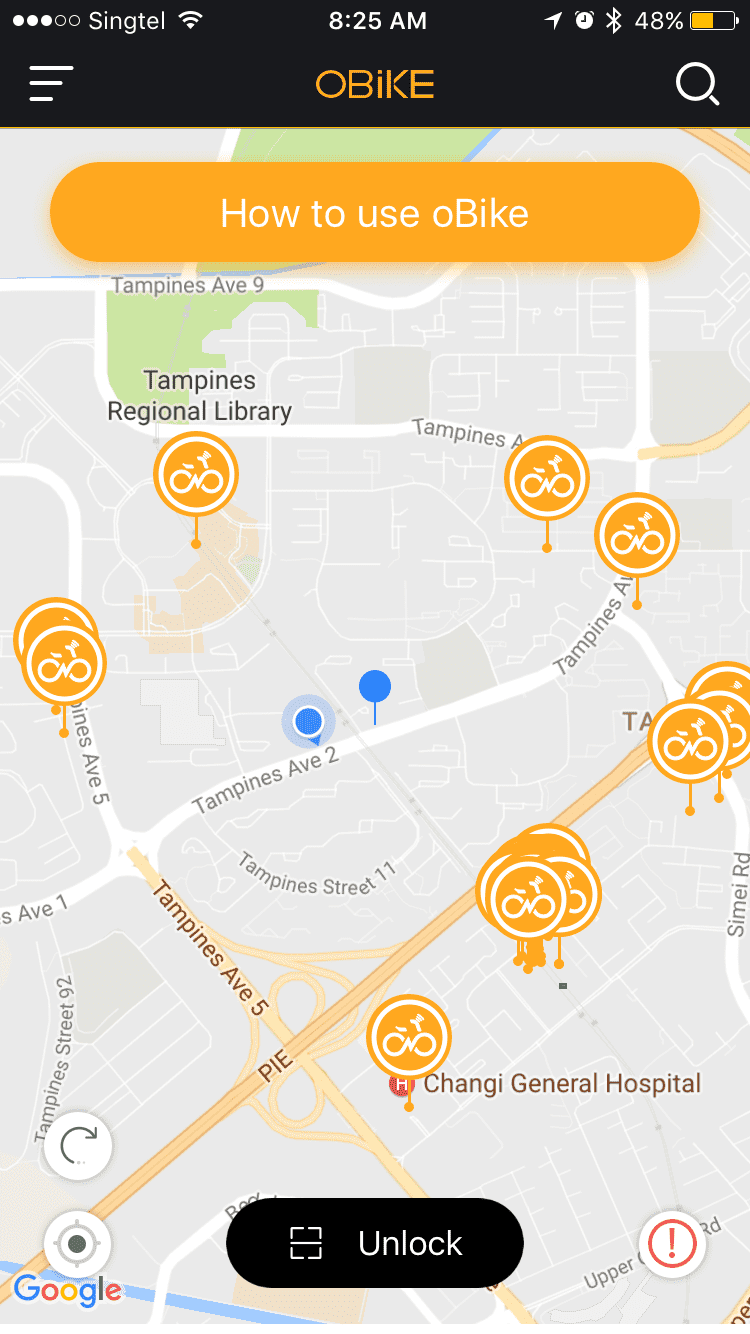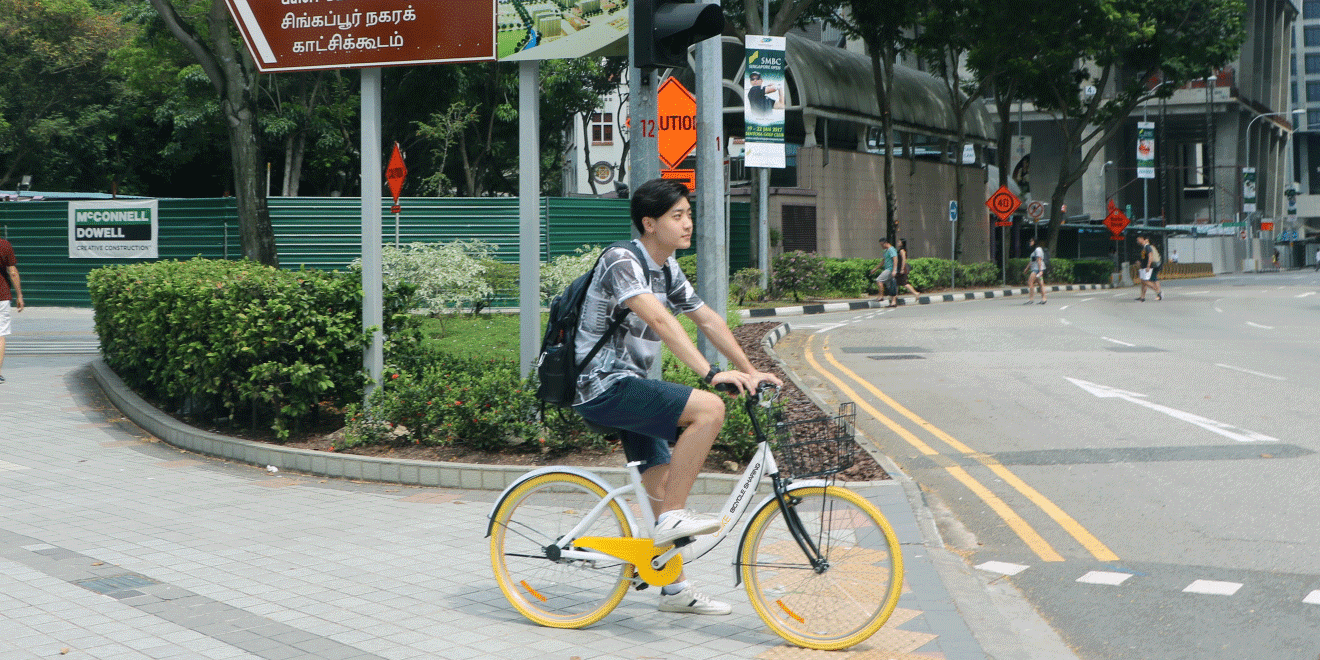Bike sharing, just like car sharing, is quite a common occurrence these days. In several countries in Europe, there are stands where you can rent a bike for a limited period. China has a startup called Mobike launched last year in Shanghai, and last year they announced plans to expand into Singapore. Unfortunately for them, a local startup has gotten there first. The startup is called oBike is the name of the startup, and they operate a lot like Uber.
Who are oBike?
Image courtesy: oBike
There was no big press release, no interview with any media outlet at all. oBike are just here since 21 January, and they have already established themselves islandwide. How islandwide do you ask? E27, who specialise in startup news, noticed two locations where you can get a bit near their office in Ayer Rajah. Here in Tampines, there are several locations where you can get yourself a bike. So oBike has the resources to get wide coverage across the island. How is this possible?

The Straits Times has shed some light on that. Just like Mobike, oBike is a China-based company, with three of the directors coming from Shanghai. There is no corporate presence here in Singapore. Instead, the company is relying on a corporate services firm here. That’s why there haven’t been any media interviews as of this point in time.
How does oBike work?

Image courtesy: Straits Times
So we aren’t fully sure who oBike are, but it’s very simple how it works. You take a look at the app’s map to find the nearest location of a bike. If you want to make sure you have a ride for later, you can reserve a bike. Once you’re ready, you go to the bike you want and scan a QR code. This unlocks the bike. Then, for S$1 you can ride the for 30 mins. The time ends once you engage the lock. The tricky part is that you can’t just lock it anywhere but at designated public bike parks. This is not quite as good as the ride services available in Europe, where you can rent bikes for a whole day and park them wherever it was convenient. Nevertheless, this could potential have a dramatic impact on the number of cyclist in Singapore.
Source: e27, The Straits Times





![[CES 2026] Quest For Perfect Color…Samsung To Push](https://loginby.com/itnews/wp-content/uploads/2025/12/CES-2026-Quest-For-Perfect-Color…Samsung-To-Push-100x75.jpg)

